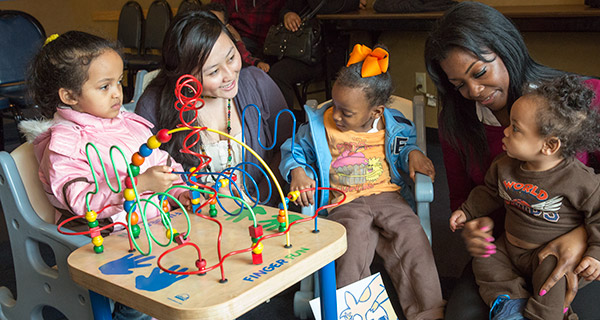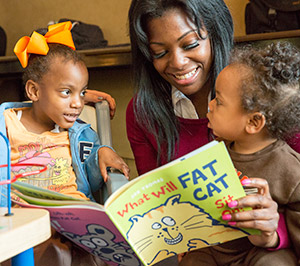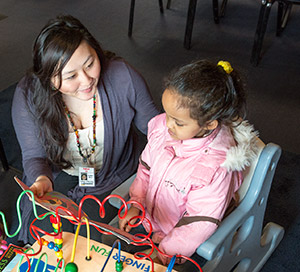
Growing up as one of eight children in Milwaukee, Pakou Lo had her share of challenges. For a time her family’s pantry was filled with food from WIC, a federal nutrition program for women, infants and children. She was bused to a suburban school, where, as a young first-generation Hmong-American, she didn’t really fit in and was labeled as having a learning disability.
“I know what it feels like to be vulnerable,” she says.
Now a senior majoring in nursing at UWM, Lo is determined to give back to children who feel the same way. And one key to her success: UWM’s Maternal and Child Health Pipeline Training Program (MCH). It’s one of just four federally funded programs in the country – and the only one in the Midwest – dedicated to increasing the number of underrepresented students pursuing graduate study in the fields of maternal and child health.
UWM’s program began in 2006 and was expanded in 2011, when it received a five-year grant renewal from the U.S. Department of Health and Human Services’ Health Resources and Services Administration and the Maternal and Child Health Bureau. The program now begins freshman year and includes training through senior year, involving nearly 40 students per year who are majoring in occupational therapy, communication sciences and disorders, pre-physical therapy, social work, nursing, psychology and nutrition.

‘It’s changed my whole life”
Before MCH, Lo says she probably would’ve stopped at her bachelor’s degree. Now she wants to earn her doctorate.
“It’s changed my whole life,” she says. “I really feel that as a higher-degree nurse I’ll be able to give back so much more in research than I would as a BSN.”
Giving back is what it’s all about.
“One of the main objectives in diversifying the health care workforce is to help reduce health disparities,” says Lora de Oliveira, the program’s co-director and clinical associate professor in the Department of Biomedical Sciences.
That’s especially critical in Milwaukee, which has some of the worst statistics around maternal and child health, including high rates of teen pregnancy and infant mortality, she says.
“It’s very difficult to reach families when you don’t have people who understand their culture and their background,” says MCH co-director Victoria Moerchen, associate professor of kinesiology.
Creating an internal pipeline
Initially, UWM’s MCH program served only seniors. But faculty soon realized that in order to achieve the pipeline into graduate school, they first had to create an internal pipeline “to identify and mentor students early to support their success in getting into the MCH-related majors,” Moerchen says.
In addition to Moerchen and de Oliveira, the program includes seven discipline coordinators. For students in the pre-major phase of their degrees, the program offers academic support and mentoring across disciplines.

Once accepted into their major, MCH students receive a year of mentored research training that is intended to augment their competitiveness for graduate school.
In their final year at UWM, selected students receive funding toward the year’s tuition and for attendance at a national conference. Some students are then able to present their research at the conference, “which is really impressive in terms of early leadership development,” Moerchen says.
The senior year cohort includes a student from each of the disciplines, as well as an at-large position that can be filled by a student who is interested in medicine, dentistry or public health. The interdisciplinary dynamic is key.
The interdisciplinary difference
“We all see things differently because we’re from different majors,” says Jessica Hickman, a senior majoring in social work. “I never realized how important it was to not only play your role, but actually know the role of others and how they interact.”
The final year of MCH training is the most in-depth: It includes a weekly seminar on maternal and child health, peer mentoring from graduate students in an MCH program at UW-Madison, mentoring by families of children with disabilities, traveling to the state capitol to learn about advocacy, observing the Care Coordination Clinic at Children’s Hospital of Wisconsin and volunteering with various community organizations.
“It’s a very rigorous curriculum from start to finish, but we’ve found that it’s a very valuable experience,” de Oliveira says. “It really puts students in a position where they’re competitive for applications to grad school and they actually begin to feel ready to take their education to the next level.”
As for Lo, she hopes to stay on at UWM. “They have a fantastic Doctor of Nursing Practice program,” she says. “UWM has given me so much, more than I could’ve ever anticipated as a freshman. It’s really taught me who I am.”






